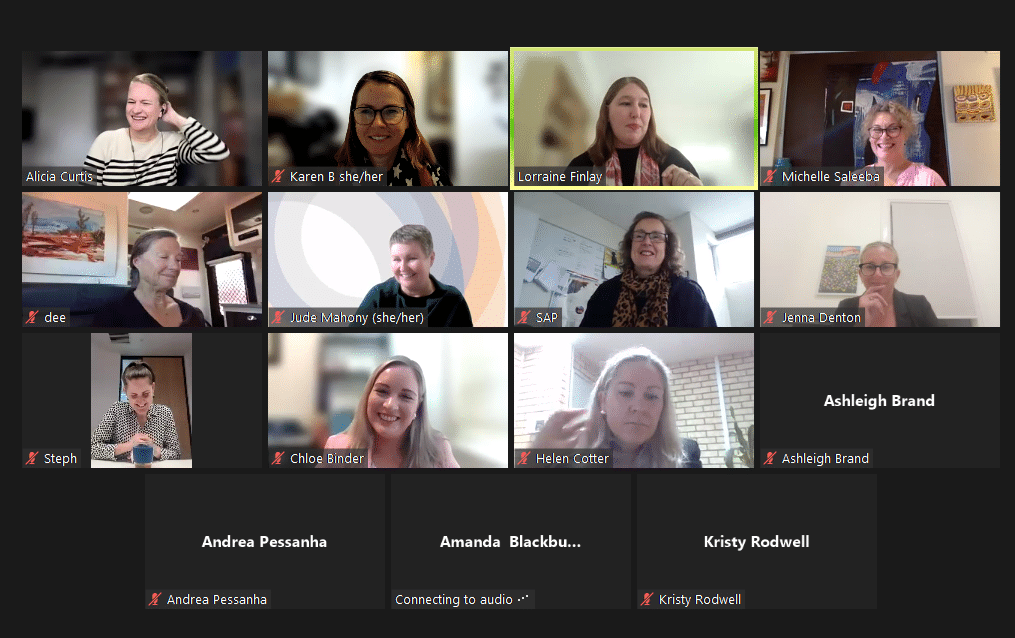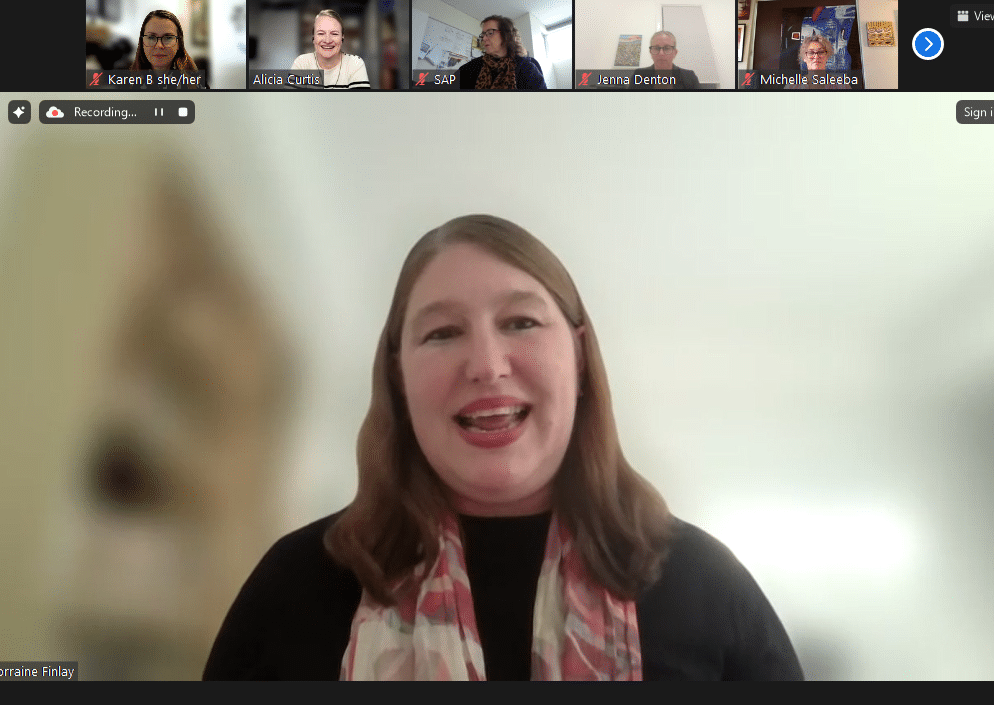29th July 2024
Lorraine Finlay is the Human Rights Commissioner for Australia and a Member of 100 Women.
This week she joined our members in an online webinar as our “member in focus” where we explored her journey to the Australian Human Rights Commission and the portfolio of work that this organisation is responsible for.
During the webinar, facilitated by 100 Women Co-Founder Alicia Curtis, Lorraine shared her journey to becoming an Australian Human Rights Commissioner. Lorraine discussed the various roles she has held, including working against human trafficking, and the importance of finding work that is both fulfilling and allows for a balanced family life. Reflecting on her appointment as Human Rights Commissioner, Lorraine described it as a significant privilege and responsibility.
“There is no single pathway to reach this position, my career has been driven by a desire to make a positive impact and serve our community”.

Lorraine emphasized the interconnectedness of human rights issues and her role in coordinating work with seven other Commissioners that make up the Australia Human Rights Commission including the Sex Discrimination Commissioner, Age Discrimination Commissioner and the Children Commissioner.
Her team of four staff work closely with other Commissioners to avoid duplication and to enhance the congeniality of their work such as creating joint submissions to the United Nations.
But the Australian Human Rights Commission spend just as much time working with other countries and learning and sharing in this advocacy space.
Emerging Human Rights Issues and Collaboration
Lorraine also touched on the emerging human rights issues in Australia, particularly around housing and the impact of deep fakes. She highlighted the importance of international collaboration to try and combat these issues as they are the same issues faced on a global scale.
“Some countries doing interesting work include Taiwan, the work they are doing around democratic resilience is really incredible, and on disinformation. The Danish institute of Human Rights is doing a lot of wonderful work around technology and Human Rights, and our counterparts in New Zealand, the Inspectorate, do Prison standards and reviews and detention inspections and they’ve just revised their inspection methodology for detention centres and some of the things that have come up, Australia will be grabbing hold on to and looking at when we review our methodologies next year”
What do we want our legacy to be?
“It’s so easy if you only think of Human Rights in the context of big world events, international treaties, united nations, I mean you would really want to go and hide under the covers and never come out again. It’s so easy to just be completely overwhelmed by everything that is happening in the world. People feel overwhelmed and this leads to disillusion. I think it’s critical to remind ourselves that human rights is for all of us. Human Rights begins with people treating each other with kindness and dignity and respect.
Lorraine Finlay
“Our role at the Commission is to strengthen that conversation – What each of us as individuals can do in terms of human rights in day to day living. Not seeing Human Rights as always about what government has to do, or laws we need to pass, or what Australia as a nation needs to do, but all of us taking some responsibility in that human rights is something that we contribute to – each and every day – through every interaction we have with other people”.
Balancing Social Media, Privacy and Technology
Alicia and Lorraine also discussed the challenges posed by social media and the need for a national and global response to this issue.
Lorraine highlighted the complexities of balancing the benefits and harms of social media for children, emphasizing the need for updated privacy laws, increased accountability from social media companies, and better education for parents and children.
The role of Community Organizations
She also acknowledged the challenges of maintaining a balance between recognizing the valuable work done by community organizations and advocating for improved government services. Sharing positive stories and highlighting the work of these groups could help bring attention to their efforts.
Improving Understanding, Empowering Communities, and Respecting Dignity
Lorraine highlighted the need to improve understanding of practical issues faced in remote and regional areas of Australia among decision-makers in Canberra. She discussed the early stages of work on housing policies, emphasizing the importance of focusing on human rights and practical recommendations for the Australian Government.
Alicia mentioned the value of awards programs in promoting best practices and raising awareness. The commission provide annual awards in Human Rights achievements and more can be discovered here.
Both agreed on the importance of empowering and uplifting people, particularly women, through grassroots initiatives and female-led enterprises. They stressed the importance of respecting dignity, showing kindness and compassion, and thinking globally while acting locally.
Lorraine and 100 Women
Lorraine joined 100 Women in 2022 to stay connected with Western Australia while working in Canberra.
“100 Women exemplifies human rights in action through its community-driven approach to support families and strengthen society. I really value the enthusiasm and incredible initiatives undertaken by 100 Women members, which inspires my work promoting human rights”.
We thank Lorraine for her time and her insights. Read more about the Australian Human Rights Commission here

